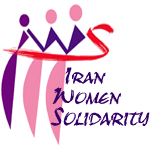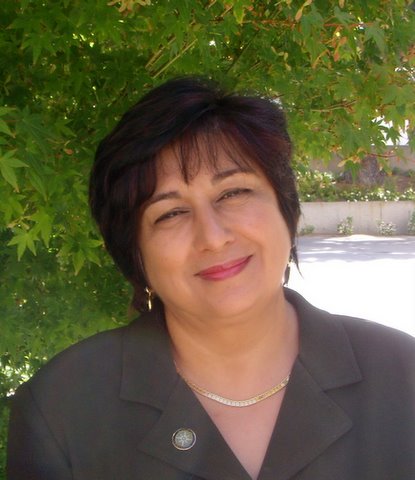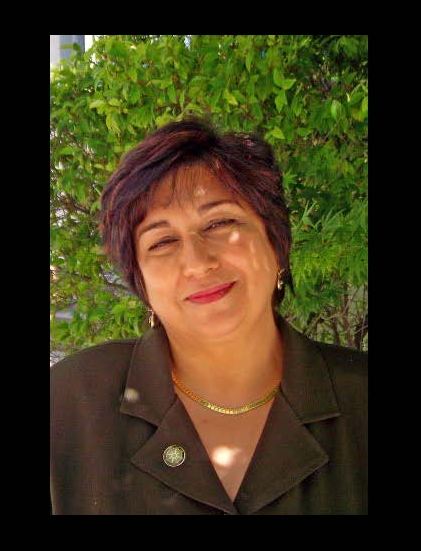The Islamic Republic of Iran, in a provocative act, has announced its candidacy for the United Nation Human Rights Council, a UN organization based in Geneva. The candidacy of Iran comes at a time that during the last 10 months, Iranians are experiencing one of the darkest periods of human rights violations since 1979 revolution. The candidacy of Iran for the UN Human Rights Council is comparable to electing apartheid South Africa to the United Nations Committee on the Elimination of Racial Discrimination or to awarding the US for humane treatment of detainee’s right after the world was shocked with pictures revealing sexual torture and humiliation of naked prisoners.
The UN Human Rights Council seats are allocated by the regional groups, not by the level of their adherence to human rights standards. The regional groups and the number of their seats are African Group, 13 seats; Asian Group, 13 seats; Eastern European Group, 6 seats; Latin American and Caribbean Group, 8 seats; and Western European and Others Group, 7 seats. To be elected to a seat on the UNHRC for a three-year term, a state must achieve the support of the majority of the members of the General Assembly, i.e. at least 97 votes and council members may seek only one time immediate re-election. While the US voted against the establishment of the UNHRC and boycotted the Council during the Bush Administration, during his first year of presidency, President Obama reversed the previous policy, joined the UNHRC, and proposed to reform it from within by being “engaged” in the UN Human Rights Council.
The current vacancy for the Asia Group is only four, with Iran, Malaysia, Maldives, Qatar and Thailand having announced their candidacies. The winners will be chosen by secret ballot within a UN body on May 13th.
While the four other contenders from Asia group are not necessarily better qualified candidates and do not have a significantly better human rights records, Iran’s human rights violations remains more dire in the three areas of death penalty and torture, freedom of expression, & freedom of religion.
Iran’s election to the United Nation Human Rights Council in 2010, the year during which Iranians have endured heightened human rights violations by Iran’s state and non-state actors, will not only shatter the hopes of the Iranian people for recognition and support from the global community in the struggle for civility, rights, and dignity, but also compromises the credibility of UNHRC.
The United Nation Human Rights Council (UNHRC) is a relatively new inter-governmental entity within the UN System and is a subsidiary body of the United Nations General Assembly. It was established on March 15th, 2006 with an overwhelming vote of the UN General Assembly to replace the dysfunctional, heavily criticized Human Rights Commission. The hope was to build a more credible UN Human Rights entity after the UN Human Rights Commission lost the respect of the global community. The 47-nation United Nation Human Rights Council replaced the 53-country UN Human Rights Commission. UN Secretary General Kofi Annan welcomed what he called an “historic resolution… that gives the United Nations a much-needed chance to make a new beginning in its work for human rights around the world.”
At Iran’s Universal Periodic Review (UPR) in Geneva on February 15, 2010, the head of Iran’s delegation, Mohammad Javad Larijani, remorselessly disregarded all the atrocities documented by human rights defenders, journalists, NGOs, and credible human rights global organizations. He blatantly rejected almost all the recommendations by other states for the remediation of human rights violations in Iran. The Iranian proverb saying “daste peesh migireh ke pas nayofteh” (Instead of admitting one’s fault, blame it on someone else or deceitfully dock the responsibility) precisely sum up the strategy of Islamic Republic of Iran in global and regional organizations.
In a world that aspires to uphold civility and respect for human rights, one would expect that the election of new members to the UN Human Rights Commission would involve the trust of member states to a given country for carrying on the mission of Human Rights Commission. The key question is: would Iran be able to carry the mission of UN Human Rights Council? Would the consistent lack of respect for international bodies and mechanisms deter other states from trusting Iran to further the goals of the UNHRC or the regional politics of countries will open the door to membership of Iran in UNHEC?
Since 2005, the human rights situation in Iran has dramatically worsened. In the aftermath of the Iranian elections on June 12, 2009, the human rights situation has deteriorated even further. Torture, rape, systematic arrests, and imprisonment are usual occurrences. According to Iranian Nobel Peace Laureate, Shirin Ebadi, Iran currently has the distinction of having the world’s highest per capita record of public hangings and executions, with the number almost quadrupling since 2005. A report published by Amnesty International on March 30th, 2010, states that Iran accounts for 388 of at least 714 executions worldwide. Amnesty International highlights in its 2009 Report that the Islamic Republic is “one of a tiny minority of states where juvenile offenders continue to be executed.”
In February 2010, the United Nation Human Rights Council condemned the “unjust suppression of innocent Iranian citizens” following last year’s presidential elections. The execution of child offenders, the use of death penalty against political opponents, the violence against women, the discrimination and the lack of freedom of expression, as well as the prosecution of religious and ethnic minorities, are among some of the gross violations of human rights in Iran.
It should be noted that no United Nation Human Rights Council official has visited Iran since 2005, with numerous requests from special investigators remaining unanswered. In its annual review of human rights practices around the world, Human Rights Watch (HRW) cited Iran as a country that “openly harasses and arbitrarily detains human rights workers and other critics.” HRW documented violence against peaceful protesters, detention of human rights defenders, as well as abuse and torture in Iran’s illegal detention centers.
For the Iranian people, it is disheartening to see civility, rights, and dignity being used as a tool in the hands of states and global forces to further their agendas; it is disheartening to see the disconnect between the words and deeds, to see the states who claim the tall order of taking stand against globalizations and militarization rendering support to the Islamic Republic of Iran, a country with gross violations of human rights. These states should vote objectively, hear the suppressed voice of Iranian people, and not play deaf and blind to the grave violations of human rights in Iran.
The history of UN human rights organizations demonstrates that their ability to carry out the mandates and to promote and protect all human rights depend overwhelmingly on the commitment of its members to mission and goals of the organization. The election of 14 new members on May 13th 2010 provides an opportunity to ensure (within the existing limitations i.e. lack of full adherence to the Universal Declaration of Human Rights by any state) that only states that have demonstrated relatively more commitment and effective action to protect human rights will be elected to the vacant seats of the UNHRC.
Member states of UN General Assembly should set aside the politics, particularly regional politics, from qualifying candidates for membership in UNHRC and vote objectively based on the human rights record of the candidates.


